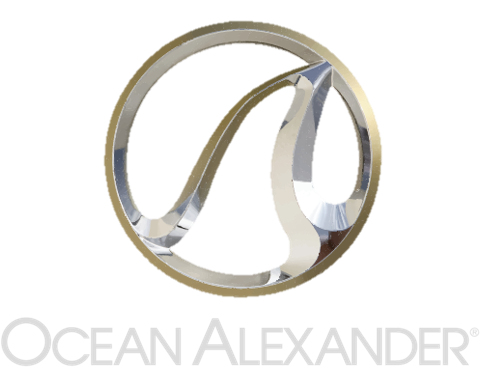in 2023
Key Performance
VOCs emissions
Waste generation compared to last year
Solar power generation
Reduced carbon emissions
Equivalent to planting
Total amount of social welfare contribution
Total amount of employee welfare benefits
Total training expenses
Average training cost per person
Average training hours per person
Profit
EPS
Revenue and Profit
Participated in educational training of integrity management related programs
Exclusively (Concurrently) Unit
The Board of Directors is the highest supervisory unit of climate change management, responsible for reviewing annual risk management reports, implementation reports, and audit reports to ensure the effectiveness of the climate-related risk management system.
The ESG working group comprises the heads of various departments and is overseen by the Board of Directors for its promotion of sustainable development. Each department head, based on the principle of materiality, conducts risk assessments on environmental, social, or corporate governance issues related to the company’s operations, formulates relevant risk management policies or strategies, and implement sustainability and climate change projects approved by the Board and committees.

Risk Assessment

Based on the principle of materiality, the Company’s representatives, department heads, and external experts conducted an analysis of environmental, social, and corporate governance factors to identify potential risks that may impact operations. In response to the identified risks, the Company develops appropriate response strategies and management mechanisms to enhance corporate value.
| 風險類別 | 權責單位 | 描述 |
|---|---|---|
| 危害風險 | 廠務部 | 因天然災害(颱風、地震、豪雨)等情事,可能造成財物損失及營運成本增加。 |
| 策略及營運風險 | 各負責單位 | 因經營策略失誤而產生損失的風險或於內部作業、人員及系統之不當或管理失誤,造成直接或間接的損失風險。 |
| 財務風險 | 財務部 | 國內外經濟及金融情勢變動,影響公司收入、維運成本、匯率利率等,進而影響公司損益及現金流量,包含:資本損失、資金缺口、信用風險等 |
| 合規/合約風險 | 行政總務部 | 合規風險指未能遵循主管機關相關法規,而造成之可能損失。 合約風險則指所簽訂的契約本身不具法律效力、越權行為、條款疏漏、規範不周等致使契約無效,而造成之可能損失。 |
| 其他風險 | 各負責單位 | 如重大外部危害事件、由極端事件損失引發的風險等。 |
Management Policies/Strategies
The disclosed information and risk assessment scope cover the parent Company from January to December 2024. Based on the assessed risks, the following management policies and strategies have been established:
| Major Issues | Risk Assessment | Description |
|---|---|---|
| Environmental Issues | Hazard Risks | Natural disasters (e.g., typhoons, earthquakes, heavy rainfall, etc.) may result in property damage and increased operational costs. By assessing natural disaster risks at various operational sites, the Company plans and implements risk mitigation measures, while also developing alternative production processes and seeking cross-border collaborations with other suppliers to minimize potential financial losses caused by such events. The Company is devoted to establishing a production process that complies with regulations and reduces resource consumption. Through the implementation of an occupational safety and health management system, the Company effectively controls and reduces pollution emissions to achieve eco-friendly objectives. Moreover, the Company continuously researches and applies different materials in yacht manufacturing process to reduce hull weight without compromising safety and further to lower energy consumption. |
| Social Issues | Compliance /Contract Risks |
Compliance risks refer to potential losses caused by failure to adhere to relevant regulations set by regulatory authorities. To mitigate such risks, the Company has implemented robust internal controls to guide employee conduct in compliance with legal and ethical standards, ensuring all personnel and operations adhere to applicable laws and regulations. Contract risks refer to potential losses caused by the invalidity of a contract due to factors such as the lack of legal validity, actions beyond authority, omissions, or inadequate provisions. To mitigate these risks, the Company should follow local regulations when drafting and executing contracts, consulting legal professionals as needed to ensure enforceability, thereby minimizing potential impacts. |
| Corporate Governance Issues | Strategic and Operational Risks |
The risk of losses arising from strategic business failures or from improper internal operations, personnel, and systems, as well as management errors, leading to direct/indirect losses. Management team regularly reports strategic issues to the Board to reduce risks through the participation, supervision and advice of the directors. |
| Financial Risks |
Changes in domestic and international economic and financial conditions may affect the Company’s revenue, operating costs, exchange rates, and interest rates, thereby impacting its profit and cash flow. This includes risks such as capital losses, funding gaps, credit risks, etc. Dedicated personnel maintains close communication with banks, continuously assessing changes in interest rates in order to secure lower funding costs, while closely monitoring international developments and market liquidity trends. Partner banks are requested to provide professional advisory services to minimize the impact on the Company. |
|
| Other Risks | The Company has established various investors communication channels. The spokesperson and investor relations officer actively communicate with the investors to avoid the misunderstanding and to prohibit any information asymmetry. The Company has listed “enhancing occupational safety and health management” as a key priority. The relevant management policies include continuously improving the work environment, routine inspection on the conduct and working environment of employees and subcontractors by on-site supervisors. Annual fire safety and occupational health training are conducted to strengthen employees’ safety awareness and the ability to deal with any contingency, thereby reducing the risk of workplace accidents. |
|
Reported to the Board of Directors
The ESG working group reports on the progress of sustainability initiatives to the Board of Directors annually. In 2024, the ESG working group reported to the Boards 4 times on the greenhouse gas inventory and reviewed and approved the 2023 Sustainability Report.

Board of Directors Oversight

The Board amended “Sustainable Development Best Practice Principles” in Mar. 9th 2022. The Company regularly and irregularly reports to the Board regarding operations, finance, corporate governance and other related issues. Through the diverse experience of its members, the Board offers broad and professional opinions to assist the Company in making appropriate decisions. In 2024, the Company reported to the Boards 4 times on the greenhouse gas inventory and reviewed and approved the 2023 Sustainability Report. In the future, the Company will follow relevant laws and report to the Boards regularly or irregularly as necessary.

